Essential Camping Gear: Two Must-Buy Items
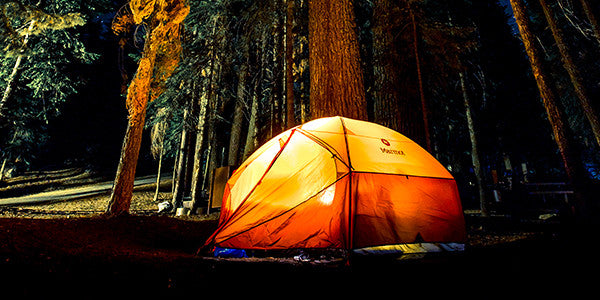
There's a huge and often costly variety of camping and hiking gear available to buy, but if you're on a very tight budget you can adapt things you already own to meet most of your needs for the trip. There are really only two pieces of speciality equipment you must buy: a tent and boots.
If you're enthusiastic about camping and hiking but can't afford to buy a bunch of gear right up front, don't worry. Most of the things you'll need are probably already lying around the house or apartment. Sure, equipment that's specially made for camping and outdoors will be more convenient, work better and be easier to clean and store than the household odds n' ends approach, but quality gear isn't cheap.
Even if you're on a very tight budget there's no reason you have to wait until you've purchased every piece of gear on your camping/outdoors wishlist, because there are really just two items you absolutely, positively have to buy especially for your outdoor trips.
Invest In A Quality Tent
You can get a very cheap tent at your local discount department store, but it's smarter to spend a little more on a tent that will last. A cheap tent is made from cheap materials, and a tear or broken tent pole can instantly render the tent useless and ruin your whole trip. A cheap tent isn't going to save you any money if you have to buy a new one for every trip.
Fortunately, you don't have to break the bank to get a quality tent. There are plenty of mid-range, 2-person tent models available on Amazon for around US$50, and a plenty of mid-range 4-person tents under US$100. At those prices you won't get many bells or whistles, but you can expect to get a basic, quality piece of outdoor equipment that will last for years if you use and care for it properly.
Spendy Hiking Boots Are Worth The Spend
Purpose-built hiking boots are expensive, but there's a reason for that. Your typical, everyday footwear is designed to be worn on generally level, smooth, dry surfaces. The cross trainers you wear to the gym and boots you wear when motorcycling may seem pretty rugged, but they're not meant to withstand the rigors of rocky, muddy, steep, wet, or slippery ground.
A quality hiking boot has a thick, tough, but flexible sole with a deep, grippy tread---kind of like snow tires for your feet. It's made of a breathable material that's tough enough to resist cuts and tears, and extends up the ankle to provide extra stability on uneven or slick ground. It has special features that make it water resistant or even totally waterproof. It has a specially designed insole and arch support system to ensure maximum comfort and minimum muscle, ligament and tendon strain during hours of wear on uneven surfaces. On top of all these features, it's also made to be as light as possible, because the wearer is usually already going to be carrying a lot of weight and doesn't need the added leg fatigue a heavy boot will cause.
There's no everyday wear boot or sneaker that will meet all of these requirements. Wearing everyday footwear for camping or hiking just about guarantees you'll return with sore, possibly even injured feet, ankles and legs, and a ruined pair of shoes.
You can expect to spend $75 or more on a quality pair of hiking boots. If that's simply more than you can afford, try checking for clearance sales online, or in your local sporting goods or outdoor gear shop. If you absolutely must pinch every last penny, hit the thrift stores. You can often find high-quality outdoor boots that have only been worn once or twice in those stores because many people make the mistake of buying all the top-shelf gear for camping before their first trip, only to discover they don't actually like camping after all.
Everything Else You Need, You Probably Already Have
No sleeping bags? Use blankets, quilts and comforters. No lantern? Bring two or more flashlights with fresh batteries. No water purification system or tablets? Bring plenty of bottled water with you. No camp stove? Bring food that doesn't require heating, or a mini barbecue grill of the type you'd take to the beach or use on your patio. Don't own a hiking backpack or daypack? You probably have one or more school backpacks stuffed in the back of a closet or stashed in the garage. Never bought a camp first aid kit? Bring along your household or car first aid kit, and if you don't own one of those assemble a first aid kit by gathering up adhesive bandages in various sizes, an elastic compression bandage, antibiotic cream, alcohol wipes, etc. and putting them together in a box or bag.
You get the idea.
There wasn't always such a thing as speciality camping gear, yet humans have been making camp outdoors since the caveman days. Specialty equipment is optimized for maximum convenience and functionality with minimum weight, so of course your camping trips will get more and more enjoyable as you continue to invest in new pieces of gear.
For those first few trips however, a quality tent and hiking boots are the only things you absolutely must buy.
- Outdoors Staff
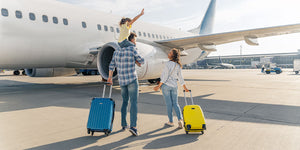
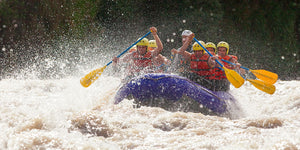


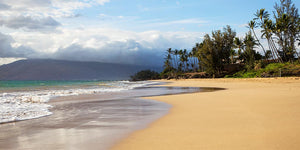
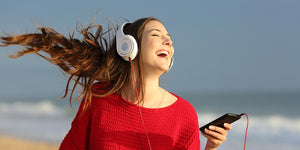
Comments 0